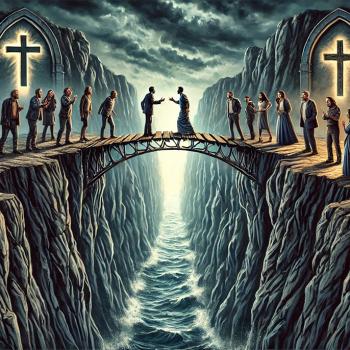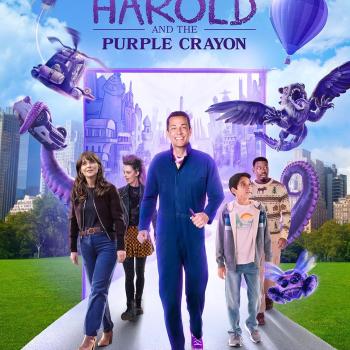The 2014 Winter Olympics, which began in Sochi, Russia this week, have already drawn a great deal of controversy. The recent Russian "anti-gay propaganda" statutes have threatened the integrity of the proceedings and the well-being of non-Russian athletes who might be gay, lesbian, or bisexual (trans* people would have a difficult, if not impossible, time being athletes in the Olympics at present for a variety of reasons, and I don't know of very many trans* athletes), and there have already been arrests for waving rainbow flags and scarves over the past few weeks.
The President of the United States refused to boycott these Olympics, despite comparisons (ever under the surface in this internet age) to the 1936 Olympics in Berlin under Hitler's Nazi regime. Rather than President Obama attending himself, he has sent as a delegation in his stead three well-known queer American athletes: Billie Jean King, Brian Boitano, and Caitlin Cahow.
The International Olympics Committee's principle 6, on non-discrimination ("Act against any form of discrimination affecting the Olympic Movement"), is blatantly contradicted by the total pass without any comment that the Sochi Games in Russia has been given by the IOC. Major corporate sponsors like Coca-Cola have been asked to pull their support from the games, but have refused to do so. Meanwhile, Coca-Cola ran a multicultural ad during the recent Super Bowl (which will run again during the Olympics) featuring various non-English languages singing "America the Beautiful" and showing a diversity of families and religions, including a male same-sex couple with their daughter as a way of indicating that they support gay rights; yet, they are still not pulling their sponsorship from the event.
Russia likewise remains one of the most conservative and difficult countries for modern Pagans to live and practice in, so the polytheistic origins of the Olympics are not even a topic for discussion at this point.
But, here at Queer I Stand, all of the above are topics for discussion, and I hope to convey some of the queer and polytheistic dimensions of these phenomena briefly in what follows.
The Olympic Games are the most well-known and prestigious of the four ancient panhellenic athletic festivals, the other three being the Pythian Games in Delphi, the Isthmian Games in Corinth, and the Nemean Games in Nemea. Athletic competitions in the ancient world were not just opportunities for exercise, cross-training for better performance in warfare, or for the enjoyment of public spectacle with sporting events (although they were all of those things!), they were sacred occasions on which the agon (from which our word "agony" comes) was a kind of extended funeral ceremony for certain distinguished heroes, or were in honor of a deity and were done for the deities' entertainment. The Pythian Games were in honor of Apollon; the Nemean in honor of Zeus, Herakles, and Opheltes/Archemoros; the Isthmian in honor of Poseidon and Melikertes/Palaimon; and the Olympic in honor of Zeus and Pelops. (It should be noted that Opheltes was an infant, Melikertes not much older than that, and Pelops—who died twice!—was a young boy at their deaths and being honored as heroes.) Just as animals could be sacrificed, or a votive hymn could be offered, so too was the sweat and toil of human effort and exertion in striving for the perfection of physical prowess in competition a fitting offering to the gods and heroes.
But, apart from the homoeroticism of Zeus with Ganymede, Apollon with Hyakinthos (and many others!), and Herakles with Hylas (and others!), what does anything "queer" have to do with the Olympics? Pelops himself was involved as the younger partner in a homoerotic relationship with the god Poseidon, which was said to have been the origin of intergenerational homoeroticism in some ancient Greek sources. Pelops was resurrected from his father Tantalus's cannibalistic sacrifice of him to the gods as a trick, and then became Poseidon's youthful lover. Unfortunately, Pelops was banished from Olympus by Zeus over his lingering anger at his father Tantalus for stealing offerings to the gods. Eventually, Pelops wooed and won Hippodamia with a chariot-race that used horses that he obtained from Poseidon as a token of their former love. He had a hero-shrine at Olympia in Elis that was renowned for its bloody sacrifices to the hero as a chthonic deity, and the Peloponnese was named after him. His children included Atreus, who killed one of his brothers and was the father of Agamemnon and Menelaus, and grandfather of Orestes. A great deal of bloodguilt attached itself to this family generation after generation.
Whether knowingly or not, the Olympic Games were re-founded in a legacy that not only honored the gods and heroes of the ancient world, but also one of the mythological first homoerotic relationships, and one of the most tragically conflicted heroic families of classical myth as well. Perhaps we should not be surprised that such controversies occur under the name of an event so tied to these figures that were heavy with bloodguilt.





